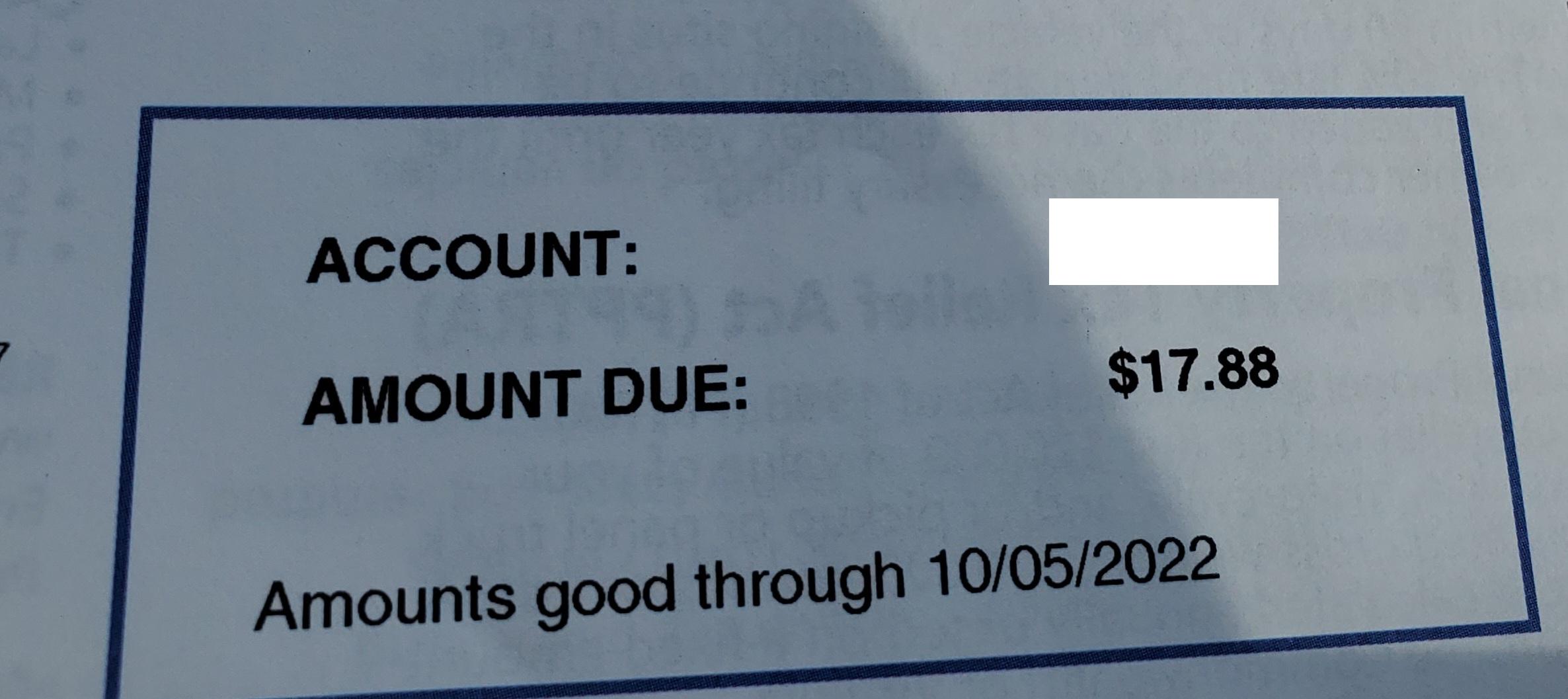What Founders Learn: Analyzing The Reasons Behind Food Startup Failures

Table of Contents
Lack of Market Research and Validation
Thorough market research is the bedrock of any successful business, and food startups are no exception. Many food startup failures stem from a lack of understanding of the target market and its needs.
Ignoring Target Audience Needs
Understanding your customer is paramount. This means going beyond basic demographics and delving into their preferences, dietary restrictions, purchasing habits, and lifestyle choices. Failing to do so can lead to a product that simply doesn't resonate with the intended audience.
- Lack of thorough competitor analysis: Many founders underestimate the competition. Knowing what your competitors offer, their pricing strategies, and their strengths and weaknesses is crucial for differentiation.
- Failing to test product-market fit before scaling: Don't invest heavily in production before validating your product with potential customers. Start with small-scale testing and gather feedback to refine your product and business model.
- Neglecting feedback from potential customers: Actively solicit feedback from your target audience throughout the development process. Use surveys, focus groups, and beta testing to identify areas for improvement.
Poor Market Sizing and Forecasting
Accurate market sizing and realistic sales forecasting are essential for securing funding and managing resources effectively. Overly optimistic projections can lead to financial instability and eventual failure.
- Overestimating market demand: Be realistic about the size of your potential customer base. Avoid falling into the trap of thinking everyone will love your product.
- Underestimating operating costs: Thoroughly research and account for all operating expenses, including ingredient costs, labor, rent, marketing, and distribution.
- Failing to account for seasonality or economic fluctuations: Consider how seasonal changes or economic downturns might impact demand for your product. Build flexibility into your business model to adapt to these changes.
Operational Inefficiencies and Scaling Challenges
Even with a great product and market, operational inefficiencies can derail a food startup. Scaling production and maintaining quality while managing costs is a significant hurdle.
Supply Chain Issues
The food industry relies heavily on a stable and efficient supply chain. Problems with sourcing ingredients, managing inventory, or ensuring consistent quality can severely impact operations.
- Reliance on unreliable suppliers: Establish strong relationships with reliable suppliers who can consistently meet your needs in terms of quality, quantity, and delivery.
- Inefficient logistics: Optimize your logistics to minimize waste and ensure timely delivery of your products. Consider using technology to improve efficiency.
- Difficulties in scaling production to meet demand: Have a clear plan for scaling production as your business grows. This might involve investing in new equipment, hiring additional staff, or outsourcing certain functions.
Inadequate Financial Management
Financial mismanagement is a leading cause of food startup failures. Proper budgeting, cash flow management, and securing sufficient funding are crucial for survival.
- Poor expense tracking: Implement a robust accounting system to track all income and expenses accurately.
- Undercapitalization: Secure adequate funding to cover initial startup costs and ensure sufficient runway to achieve profitability.
- Failing to secure sufficient funding for growth: Plan for future funding needs as your business scales. Explore different funding options, such as venture capital, angel investors, or small business loans.
- Lack of financial forecasting: Develop realistic financial forecasts to project revenue, expenses, and profitability over time.
Marketing and Branding Mistakes
A compelling brand and effective marketing are essential for attracting customers and building a loyal following. Many food startups fail due to weak branding and ineffective marketing strategies.
Weak Branding and Messaging
Your brand identity should be clear, concise, and memorable. Your messaging should effectively communicate your value proposition and resonate with your target audience.
- Lack of a clear brand identity: Develop a strong brand identity that reflects your values, mission, and unique selling proposition.
- Ineffective marketing campaigns: Invest in targeted marketing campaigns that reach your ideal customers. Utilize a mix of online and offline channels.
- Inconsistent messaging across channels: Ensure that your messaging is consistent across all your marketing materials and channels.
Failed Marketing Strategies
Marketing is an ongoing process that requires data-driven decision-making. Ignoring analytics and failing to adapt your strategy based on results can be detrimental.
- Ignoring social media marketing: Social media is a powerful tool for reaching potential customers. Develop a strong social media presence and engage with your audience.
- Poor website design and usability: Your website should be user-friendly, visually appealing, and optimized for search engines.
- Neglecting customer relationship management: Build relationships with your customers by providing excellent customer service and fostering a sense of community.
Regulatory Hurdles and Compliance Issues
The food industry is heavily regulated, and non-compliance can lead to significant penalties and reputational damage. Understanding and adhering to food safety regulations is critical.
Food Safety Regulations
Food safety is paramount. Failure to comply with food safety regulations can have severe consequences, including product recalls, fines, and even criminal charges.
- Lack of understanding of food safety regulations: Thoroughly research and understand all relevant food safety regulations in your region.
- Failing to obtain necessary permits and licenses: Ensure that you have all the necessary permits and licenses to operate legally.
- Compromising on food safety standards: Never compromise on food safety standards. Prioritize safety above all else.
Labeling and Packaging Requirements
Accurate labeling and appropriate packaging are crucial for complying with regulations and ensuring product safety and quality.
- Incorrect labeling information: Ensure that all labeling information is accurate and complies with all relevant regulations.
- Failure to comply with ingredient disclosure requirements: Clearly list all ingredients on your packaging, adhering to all required format and disclosure regulations.
- Inadequate packaging for product preservation: Use packaging that protects your product from damage and spoilage.
Conclusion
Food startup failures often result from a combination of factors, including a lack of market research, operational inefficiencies, ineffective marketing, and regulatory non-compliance. By understanding these common pitfalls, aspiring entrepreneurs can significantly increase their chances of success. Thorough planning, robust financial management, effective marketing, and strict adherence to regulations are crucial for building a sustainable and profitable food business. Don't let your food startup become another statistic; learn from the mistakes of others and build a thriving, sustainable business.

Featured Posts
-
 Luca Marinis Assessment Of Aleix Espargaros Moto Gp Comeback
May 29, 2025
Luca Marinis Assessment Of Aleix Espargaros Moto Gp Comeback
May 29, 2025 -
 Rubios European Trip A Trump Ordered Mission
May 29, 2025
Rubios European Trip A Trump Ordered Mission
May 29, 2025 -
 Improved Network Security And Privacy The In Flux Technologies Arcane Update
May 29, 2025
Improved Network Security And Privacy The In Flux Technologies Arcane Update
May 29, 2025 -
 Comparing The Nike Air Max 95 Og Big Bubble Triple Black And Wolf Gray Hm 8755 001 To Other Colorways
May 29, 2025
Comparing The Nike Air Max 95 Og Big Bubble Triple Black And Wolf Gray Hm 8755 001 To Other Colorways
May 29, 2025 -
 Szazezreket Ero Targyak A Lakasodban Igy Talalhatod Meg Oket
May 29, 2025
Szazezreket Ero Targyak A Lakasodban Igy Talalhatod Meg Oket
May 29, 2025
Latest Posts
-
 Illegal Vehicle Registrations The Drain On Virginias Revenue From Maryland Drivers
May 30, 2025
Illegal Vehicle Registrations The Drain On Virginias Revenue From Maryland Drivers
May 30, 2025 -
 Virginia Loses Millions As Maryland Drivers Exploit Registration Loopholes
May 30, 2025
Virginia Loses Millions As Maryland Drivers Exploit Registration Loopholes
May 30, 2025 -
 Four Urgent Issues Facing British Tourists In Greece Foreign Office Warning
May 30, 2025
Four Urgent Issues Facing British Tourists In Greece Foreign Office Warning
May 30, 2025 -
 Greece Travel Alert Four Urgent Problems For British Citizens From The Foreign Office
May 30, 2025
Greece Travel Alert Four Urgent Problems For British Citizens From The Foreign Office
May 30, 2025 -
 Urgent Travel Warning Greece Issues Four Key Alerts For British Tourists
May 30, 2025
Urgent Travel Warning Greece Issues Four Key Alerts For British Tourists
May 30, 2025
